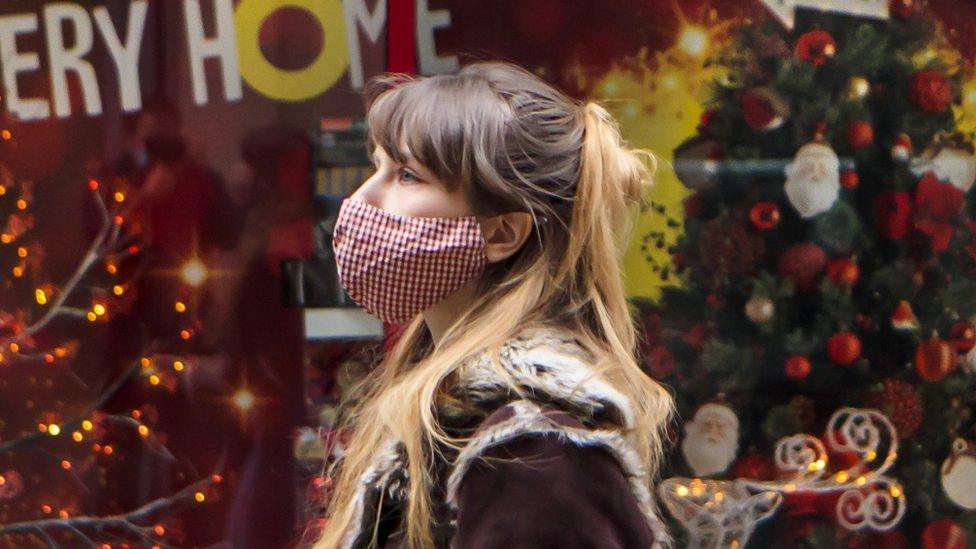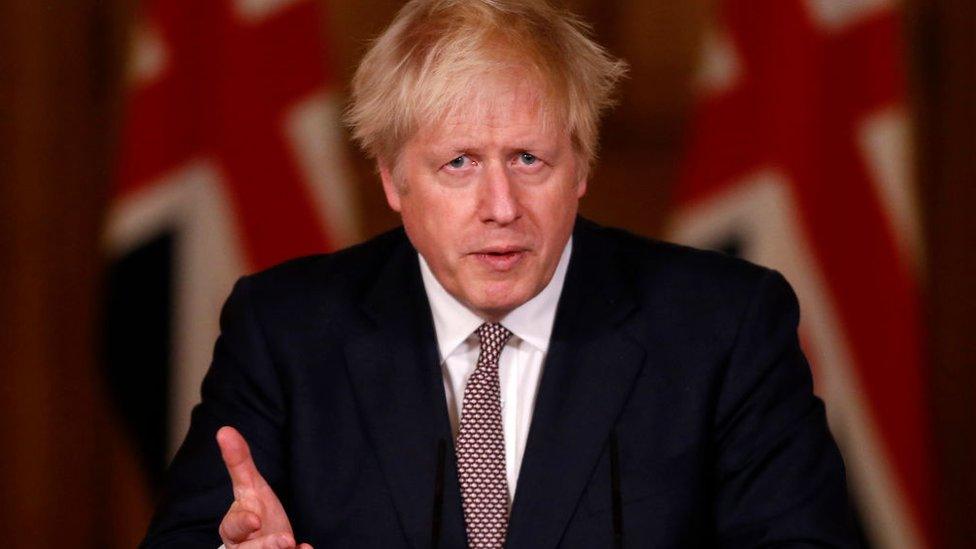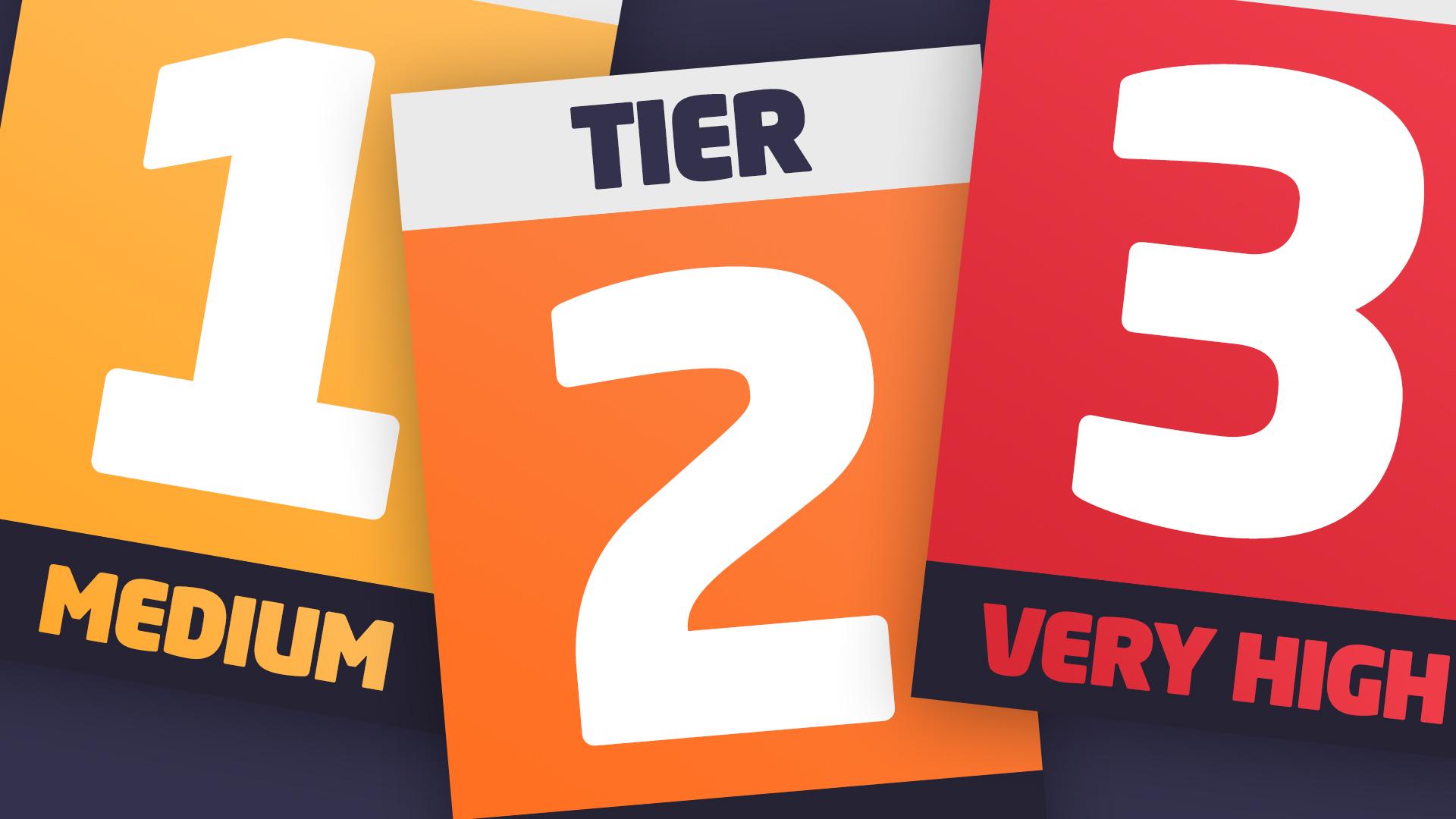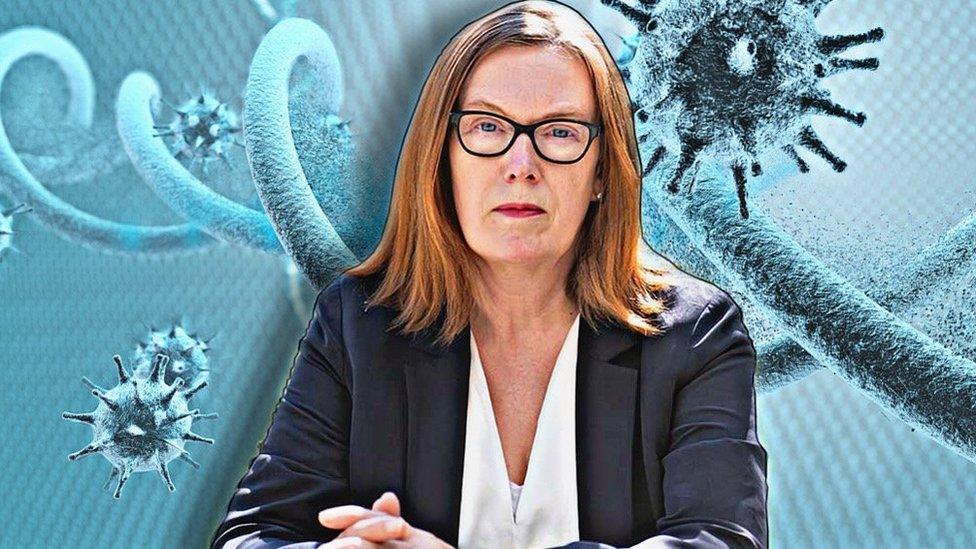Covid: Cases fell by 30% in England during second lockdown
- Published
- comments

A new study shows that coronavirus infections in England fell by 30% after the latest lockdown restrictions began.
The findings were based on testing more than 100,000 people, even if they didn't have any symptoms.
The React study was carried out by Imperial College London and market research company Ipsos MORI between 13-24 November.
Researchers have estimated that the virus's reproduction rate or R number had fallen to 0.88. That means on average, each person infected with the virus passed it on to fewer than one other person, meaning the epidemic is shrinking.
Coronavirus: What is the R number?
"It certainly is good news that the infection rate, that has been increasing since the start of September, is showing some very clear signs of falling again. But it hasn't fallen very far yet," said Prof Kevin McConway, a statistics expert at the Open University.
England's lockdown came into force across England on 5 November but national data, based on people with symptoms, suggests there was a spike in cases the following week.
That was put down to people socialising before the lockdown started, since it takes five days on average after catching the virus for it to be detectable by a test.
Prof McConway added: "Things have started moving in the right direction again, but we're by no means in the position we were at the end of the summer, or even the start of the summer, and that's after a new lockdown and some fairly severe restrictions before that."
Meanwhile, Health Secretary Matt Hancock said the data showed the country could not "take our foot off the pedal just yet".

The lockdown in England ends on Wednesday 2 December, when it's due to be replaced by a new three-tier system of restrictions.
The three-tier system is tougher than the similar one in place before 5 November because under that previous system cases continued to rise.
In total, 99% of England will enter the highest two tiers, with tight restrictions on restaurants and a ban on households mixing indoors.
Details explaining the economic, health and social impact of the rule changes will be published on Monday.
Boris Johnson asks for 'unity'
The government is hoping to convince some MPs from its own party, known as backbenchers, to support the plans when they have the chance to vote on the rules on Tuesday.
Some Conservative MPs have argued that the new tier restrictions are too tough.

Prime Minister Boris Johnson is asking for "unity" as politicians from his own party are unsure whether to back his plans
Writing to the Covid Research Group which includes around 70 MPs - who are unsure of the new rules - the Prime Minister, Boris Johnson, asked for "unity".
Adding that disagreements on how to manage the pandemic is "natural", but that the tiered system was a "balanced approach" that would help protect the NHS, keep schools open and allow the economy to reopen safely.
"There is every reason to hope and believe that the worst is nearly behind us, so now more than ever is the time to demonstrate unity and resolve," Mr Johnson said.
If a large number of Conservative MPs vote against the new tier system on Tuesday, the Prime Minister may have to rely on opposition support to get his plans through. The Labour leader, Sir Keir Starmer, is expected to meet England's Chief Medical Officer, before deciding whether to back the changes.
The government says it's listening to people's concerns. It says the tiers will be reviewed every two weeks, meaning some areas could see restrictions reduced by the middle of December.
Boris Johnson has also agreed the new system will contain a "sunset clause" - or "expiry date" - meaning the tiers will be lifted on the third of February, unless Parliament agrees to extend them.
In the rest of the UK, Northern Ireland has begun a two-week circuit-breaker lockdown, while in Scotland each area has been placed in one of five tiers.
In Wales, First Minister Mark Drakeford said pubs and restaurants will be subject to stricter restrictions - which are not yet finalised - in the run-up to Christmas. They will come into force from Friday, 4 December.
- Published2 December 2020

- Published30 November 2020

